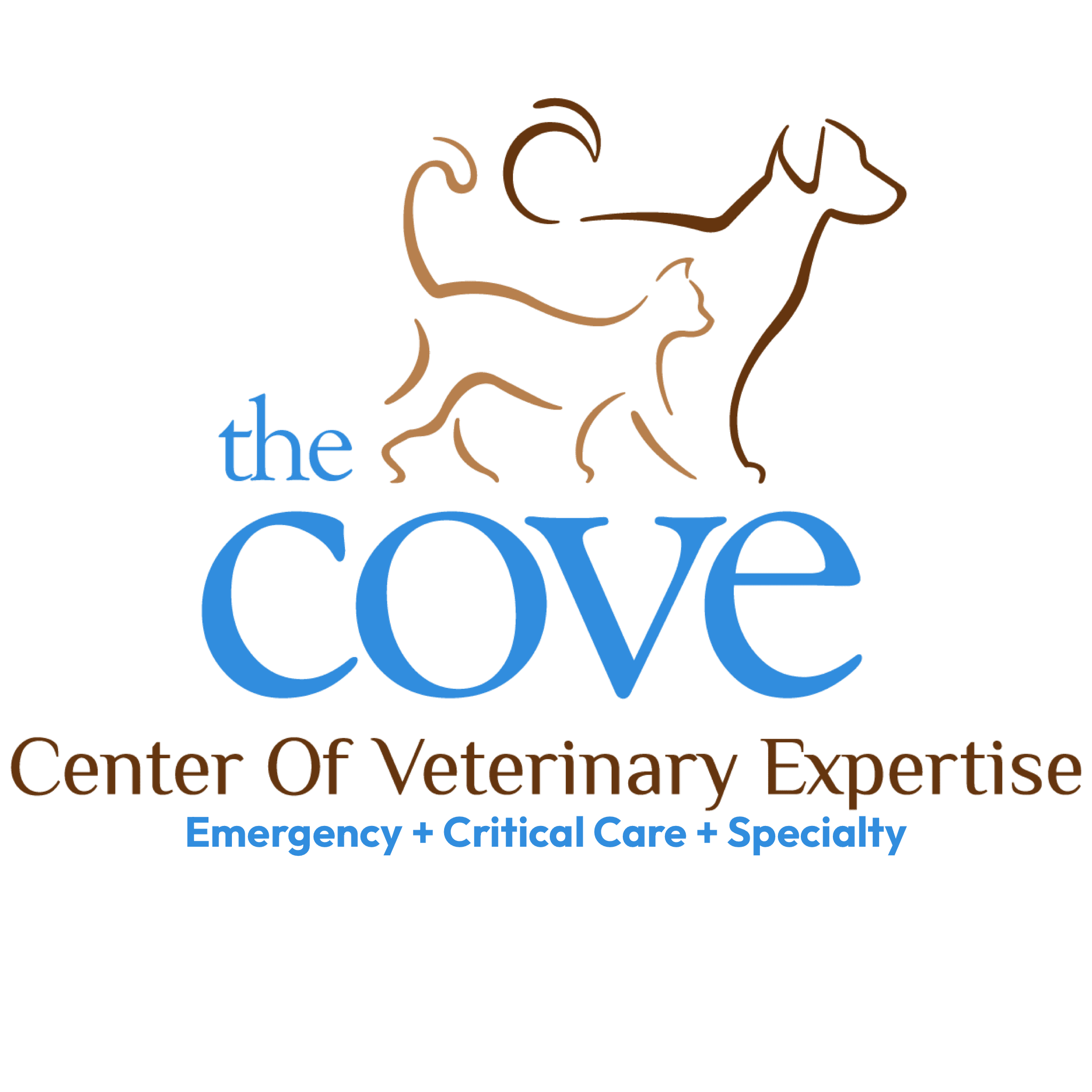During any veterinary appointment, whether a routine exam or consultation for something specific, tests are often ordered to assess the health of an animal. If your pet experiences a sudden illness or injury, tests such as blood work, X-rays, and ultrasound may be recommended. But have you ever wondered what some of these tests really do?
Veterinary diagnostic tools play a key role in helping us determine a diagnosis or best next steps. The COVE would like to share with pet owners why these tools are essential to a pet’s lifelong health.
Some of Our Tools
As an emergency and specialty veterinary hospital, our reliance on advanced diagnostic tools and technologies cannot be understated. They are the means by which we can diagnose and therefore offer an appropriate treatment, as well as monitor a wide range of pathologies and conditions. Special training is often needed to operate and/or interpret the data these tools provide. Here’s a sampling of the tools we use most often:
![]() Blood work – By taking a small amount of blood, we can measure complete blood count (white blood cells, red blood cells, platelets), glucose levels, proteins, electrolytes, and other important indicators to determine overall health.
Blood work – By taking a small amount of blood, we can measure complete blood count (white blood cells, red blood cells, platelets), glucose levels, proteins, electrolytes, and other important indicators to determine overall health.
Bronchoscopy – This is an endoscopic technique (see Endoscopy below) to visualize the inside of the airways for diagnostic and therapeutic purposes.
Dental Radiographs (X-rays) – Dental radiographs, commonly called X-rays, are used to aid in the diagnosis of numerous dental diseases and problems such as dental decay, periodontal disease, bone loss, impacted teeth, cysts/tumors, and developmental defects, among many other things.
![]() Echocardiography (with color flow Doppler) – This is an ultrasound (see below) of the heart that allows a cardiologist to visualize important structures within the heart, assess the strength of the heart muscles, and evaluate the blood flow through the heart.
Echocardiography (with color flow Doppler) – This is an ultrasound (see below) of the heart that allows a cardiologist to visualize important structures within the heart, assess the strength of the heart muscles, and evaluate the blood flow through the heart.
Endoscopy – Using a flexible fiber-optic instrument, endoscopy records video and picture images of the airways, esophagus, stomach, intestines, and other areas of the body.
![]() Fine needle aspiration (FNA) – FNA is a diagnostic procedure used to investigate lumps or masses. It is most often used on swellings or lumps located just under the skin. A thin, hollow needle is inserted into the mass for sampling of cells that, after being stained, will be examined under a microscope.
Fine needle aspiration (FNA) – FNA is a diagnostic procedure used to investigate lumps or masses. It is most often used on swellings or lumps located just under the skin. A thin, hollow needle is inserted into the mass for sampling of cells that, after being stained, will be examined under a microscope.
Holter and event monitors – When an arrhythmia (irregular heart rhythm) is identified, a Holter or event monitor may be ordered. These devices are portable electrocardiograph machines (EKGs) that record electrical activity of the heart for 24 hours or up to one month or longer.
Invasive and non-invasive blood pressure monitoring – Invasive blood pressure monitoring is done in the intensive care unit (ICU) through a needle that measures arterial pressure. Non-invasive monitoring is done externally with a blood pressure cuff similar to that used in human medicine.
![]() Laparoscopy – A type of fiber-optic endoscopy used to examine the organs inside the abdomen. It’s a low-risk, minimally invasive procedure that requires only small incisions.
Laparoscopy – A type of fiber-optic endoscopy used to examine the organs inside the abdomen. It’s a low-risk, minimally invasive procedure that requires only small incisions.
![]() Radiology (X-rays) – X-rays are painless electromagnetic waves that are released by a machine and pass through the body onto a special receiving plate. Images of the bones, tissues, and structures can be captured and translated to electronic images.
Radiology (X-rays) – X-rays are painless electromagnetic waves that are released by a machine and pass through the body onto a special receiving plate. Images of the bones, tissues, and structures can be captured and translated to electronic images.
Thoracoscopy – Similar to a laparoscopy, thoracoscopy allows a specialist to view the outside of the lungs, and the space between the lungs and the chest wall, using a thin, lighted scope with a video camera.
Ultrasound – Ultrasound is a type of imaging that uses high-frequency sound waves to evaluate organs and structures inside the body. A special transducer produces the sound waves, while a high-powered computer interprets the sound waves and produces a picture for the doctor to assess.
Urinalysis – This test of the urine can detect kidney imbalances, urinary tract infections, and diabetes, among other conditions.
The COVE’s board-certified specialists, emergency clinicians, and expert team members rely on these advanced diagnostic tools every day to provide the knowledge they need to give your pet the best care possible.
If you have any questions about our diagnostic tools or our emergency or specialty services, we welcome your call anytime at 757-935-9111.
About Us
The COVE’s veterinarians and staff wholeheartedly embrace the core values of community, collaboration, commitment, compassion, and integrity. This focus ensures that pets, the people who love them, and their primary care veterinarians have as positive and affirming a healthcare experience as possible, regardless of the circumstances that bring us all together.
